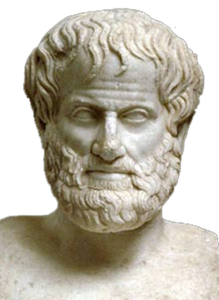λόγος, πάθος, ἔθος, or logos, pathos ethos are concepts that go back to 384 – 322 BC, when Aristotle wrote about modes of persuasion. With age, I grow more and more interested in old things and thus, these three concepts have become my preferred way of evaluating speakers. I spend a great deal of time inviting speakers to conferences, watching them actually speak, and later discussing whether they should be invited again.
In short, the way I evaluate speakers is by looking at these three aspects:
Logos – what they are saying
Pathos – how excited they are
Ethos – who (the audience think) they are
If they have all three, they are wonderful speakers and get good evaluations, because they know what they are talking about, at least more than the audience (logos), they are charismatic on stage, because they show feelings about the subject (pathos), and they are the right person to be talking about this because they have written the book, the software or have a famous case study in a famous company (ethos).
But we cannot all get speakers like Barack Obama for our conferences. Instead you often have to settle for less. And luckily here, as in many other places, two out of three ain’t bad:
If you have logos and pathos, you do not need to be famous when you start your talk. People will listen anyway and get a lot of knowledge out of it.
If you have logos and ethos, but are not very charismatic on stage, that can be enough as well, since people really like to meet their heroes and if you still have something to say, they will be listening and get something out of it.
And surprisingly: if you have pathos and ethos, it does not always matter that you do not know that much (more than the audience) about your subject, because people really want to see you and if they feel entertained while you speak, they will let you get away with it.
So, if you are ever asked to give a presentation, please consider if you know what you are talking about, if you are passionate about the subject and if you are the right person to be talking about it.
